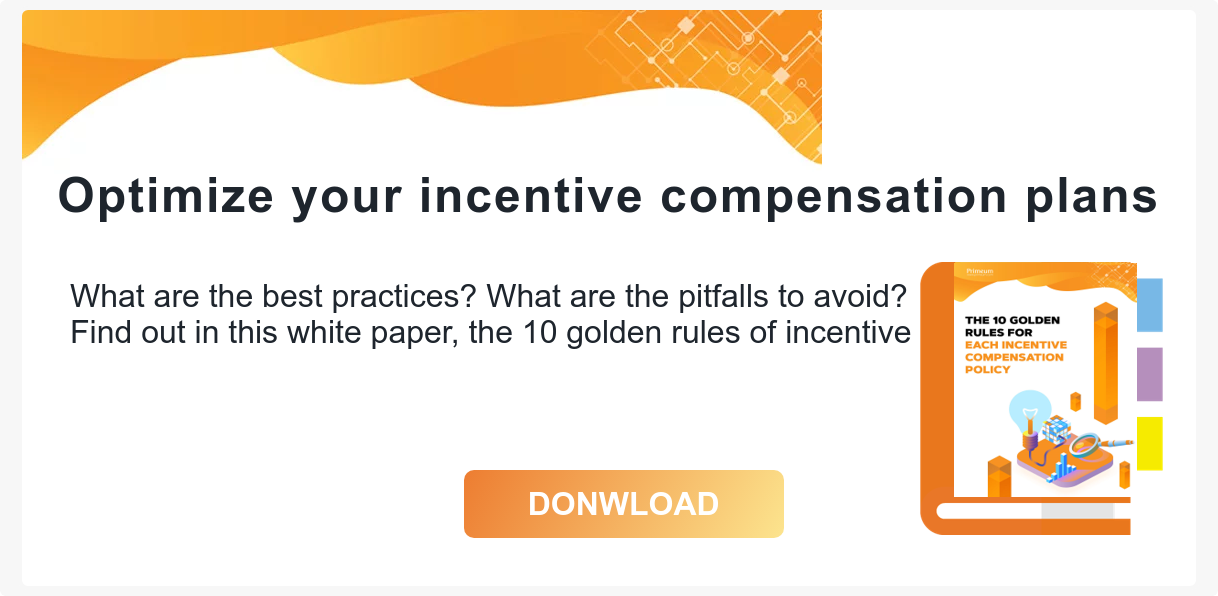While incentive compensation is the most used incitement for the sales force, motivating its sales teams also involves other factors that must take into account the team and the individual. The complexity of the motivational process is multiple and it is sometimes difficult for managers to understand everything.
Thus, it is interesting to address the various motivational levers available to the sales manager to maximize the commercial efficiency of his team.
THE MOTIVATION OF COMMERCIAL PEOLE TODAY
Involving the different actors of a company is a very usual subject, one of the biggest concerns of managers. From great motivation derives quality and efficiency. It is critical to maintain this motivation over time. On the sales side, motivation is stimulated by the right balance between intrinsic and extrinsic levers. The sales manager must then orchestrate and arbitrate finely between these two levers to generate motivation and therefore commercial efficiency.
If today the motivation of commercial people is stimulated in majority with a financial lever by an incentive pay plan (extrinsic lever), the issuess around the engagement of the teams have never been so strong.
1. START BY ESTABLISHING A RELATIONSHIP OF CONFIDENCE
It is easier to motivate a salesperson if there is a relationship of confidence with his hierarchy.
His initiative will be part of a framework related to his degree of autonomy, but also by the implementation of qualities such as the manager's ability to delegate and trust him. As a facilitator, the collaborator will have to anticipate, alert, he will raise the confidence so that his manager activates the levers of the delegation and agrees to make it rise in competences by entrusting him with more responsibilities. This confidence cannot be decreed, but it is earned day after day, through professionalism, relevance and rigor.
2. DEVELOP PERSONAL SATISFACTION
To boost the motivation of a sales team, each sales force must be motivated. This is only possible if everyone feels personal satisfaction at work, if it is animated by a spirit of competition exercised within his team, but also that he perceives a reward according with its results.
"Commercial agents [...] provide much better benefits when they are happy in their work".
The sale is a human adventure: if you do not retain your sales, you will not be able to have more customers. To reach this goal, the motivation of a sales team requires a real knowledge of the manager with his collaborators.
Increasing the well-being of its salespeople is also developing their creativity. This goes through the salesperson's involvement in the strategy by showing that his opinion matters and that it can have an impact on his day-to-day work and the company's approach.
3. THE ROLE OF HIERARCHY: RECOGNITION AND VALORISATION
A commercial person is much more motivated if his hierarchy shows him the recognition and especially follows him in his action. Be careful, this must not go against autonomy.
The follow-up for the manager goes through the help to arbitrate quickly, help to prioritize the tasks and the stimulation of the collaborator. He must also be mobilizing.
Thus, "It is not saying "you must do 1,000" but "that's how we are going to achieve 1,000" that the manager will mobilize". Focusing on the "how" rather than the result implies proposing an action plan to its salespeople as quickly as possible, at four months rather than a year. "
In short, the needs of the business must become the essential need that the commercial agent will wish to satisfy immediately. Interested in his mission, empowered, recognized and valued, the commercial person is gaining motivation.
4. ANALYZE INDIVIDUAL RESULTS TO MOTIVATE COMMERCIAL TEAMS
The commercial team motivation goes through the development of competitiveness, because the good results obtained by some are motivating for others.
A continuous analysis of the individual performances makes it possible to better quantify the efforts of each one, to evaluate the quality of the results obtained but especially to go forward by the identification of the margins of progression of the commercial one. It is also a way to value it by providing advice and tools to improve.
Insisting on the progression of results generally has the immediate impact of further developing the desire to win.
5. INCENTIVE COMPENSATION AS A MOTIVATION TOOL
Encouraging a salesperson is also rewarding him in proportion to the efforts made and the results obtained. It is also through incentive compensation that a motivated salesperson is congratulated. This is a financial recognition considered justified. If the fixed salary rewards the job position, the experience acquired and the competences, the incentive compensation rewards the performance. This financial reward, however, can only be a motivating factor for salespeople to the extent that it correlates with the performance achieved. It can only be motivating if it is sufficient. It is considered not enough motivating if it does not represent at least 25% of fixed salary
But variable pay can sometimes become the source of inequalities that impact employee motivation. The threshold effects create levels at which some employees may stop and reduce their investment when they judge that their chances of reaching the top goal are too small. In addition, a system of badly redistributed bonuses can create inequalities between eligible and non-eligible employees. In short, there are many ways to improve the success of your compensation plan to optimize your incentive scheme, animate it, monitor it, and communicate internally.





